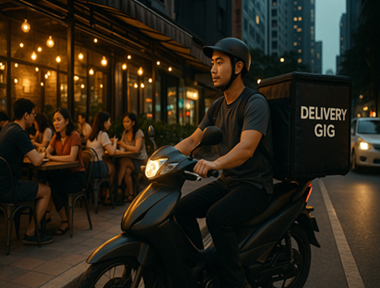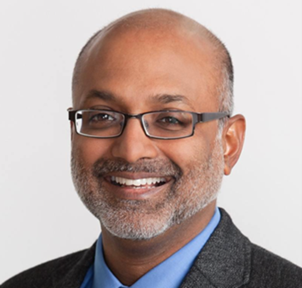Me & My Money; Room for active and passive funds in investment portfolio
It is important to stay invested and not let emotions affect decision making, says insurance executive
Insurance executive Goh Kay Yiong knows the danger of letting emotions - from greed to fear - take hold of your investment decisions, so he opts to put his trust in fund managers to achieve his objectives.
Mr Goh, 44, believes that investment-linked insurance plans are a useful tool as they offer growth opportunities across a wide range of strategies, while also providing insurance protection.
He adds that while it is important to stay invested, investors should never let their commitments affect them emotionally: "If the amount you have invested causes you not to sleep easy at night, then is that investing or gambling?"
Mr Goh is Tokio Marine Life Insurance's chief investment officer, and has also held wealth advisory roles at Citibank and the Bank of Singapore.
The accountancy graduate from Nanyang Technological University also holds a master's in business administration and is a chartered financial accountant.
He notes that investors are now living in a climate of information overload, with the need to be familiar with trends such as meme stocks shared among the Reddit investor crowd.
Mr Goh, who is married with a 14-year-old son, cites an emotional hack he uses to ensure that he stays the investment course when markets turn volatile.
He looks at the top 10 holdings the funds in his portfolio invest in and asks himself if these are companies that can last the course of an economic downturn and emerge stronger.
"It is not difficult to form such views, as a typical search online will tell you broadly what the company's prospects point to," says Mr Goh, who notes that information on fund holdings can often be found on publicly available fund factsheets.
But ultimately, money is not the be-all and end-all, and the saying that it is more blessed to give than to receive is one that resonates firmly with him, he says.
Q: What's in your personal portfolio?
* Worst and best bets
Q: What has been your biggest investing mistake?
A: I tend not to remember the bad! Jokes aside, while the bad mistakes can help you form your guardrails, they can also cloud judgment on the next growth opportunity.
The bursting of the dot.com bubble led to a period of scepticism on anything associated with technology and that mood was pervasive for close to a decade after the bubble burst. But it also meant missing out on the growth opportunities on companies that were harnessing technology to enjoy huge economies of scale.
Coming back to the oscillation between greed and fear of investing, I think my mistake made earlier in life was to sell winners too early. I thought I was clever in selling securities that had generated 30 per cent in returns, but these securities returned many-folds after they were sold.
I have since learnt to address my inability to hold investments for the long term by investing in funds. I tend to hold them for a longer period and, with that, I am able to ride out the market volatility and have discipline in the investment process.
Q: And your best investment?
A: My response will pale in comparison with those who were early investors in cryptocurrencies or have made huge gains by investing in stocks like Tesla.
The best investments I have made are those in passive and active funds invested in the United States and Asia region, which were made more than 10 years ago.
KEEP AN OPEN MIND
It may be a cliche, but the best investment one can make is probably in oneself. Having been through various business cycles, the importance of investing in oneself cannot be over-emphasised. Be it taking self-study courses online or opening your eyes to various developments happening in the industry, it is crucial to never shut your mind off from new developments.
MR GOH KAY YIONG,
Tokio Marine Life Insurance's chief investment officer.
A: I have a mix of funds that are both actively and passively managed. The common narrative has been for investors to stick to passive. But I am not in that camp as I think there is room for both to play a role in an investment portfolio as there are active managers who have done remarkably well when measured against similar passive strategies.
I tend to look to my Central Provident Fund savings as a form of fixed-income allocation within my investment portfolio, hence I have a low exposure to bonds.
In equities, I saw this study which stated that generally for most equity markets, if one is able to hold an investment beyond five to 10 years, that position will tend to generate positive returns.
Hence, if one is able to have a more than five-to 10-year investment timeframe, and is sure that this pot will not be used to fund emergency cash needs, then this can be allocated to equities.
Within equities, my exposure is a fair mix of developed markets and emerging markets - mainly Asia. There is a fair bit of home bias for sure, in investing in Asia, but that has been offset by my developed market equity exposure.
If the ultimate aim of investment is financial independence, then the importance of obtaining insurance protection for oneself and one's family cannot be downplayed. In a football team, you need not only strikers to score the goals, but also defenders to make sure you do not leak them.
Insurance policies are like your defenders or the goalkeeper. This is due to the disproportionate costs for events that insurance protection is meant to cover, without which it means that the investor will have to dip into the savings or investment portfolio to pay for life's unexpected expenses.
This will inadvertently derail the intended objective of the investment portfolio. Hence, if we start from the most basic insurance coverage, it will be to ensure that we get our hospitalisation plan cover right, followed by critical illness coverage and disability insurance.
Q: What are your immediate investment plans?
A: It may be a cliche, but the best investment one can make is probably in oneself.
Having been through various business cycles, the importance of investing in oneself cannot be over-emphasised. Be it taking self-study courses online or opening your eyes to various developments happening in the industry, it is crucial to never shut your mind off from new developments.
Q: How did you get interested in investing?
A: In the past, we used to have just one television set in the house, and, on days when adults were at home, the children would have to give way for the grown-ups to switch to the Teletext pages, which had information on the Singapore Exchange and counters.
When the counters were in green, we would hear the older folk recount their stock stories and how they managed to get their investment calls right. That was how I was first exposed to investing.
Q: What else is in your financial plan?
A: Working in a life insurance company, I am a believer of legacy and retirement planning. At the risk of overly promoting the benefits of insurance and my firm's products, I think there is a range of insurance products that cater for each individual's stage in life.
Q: How are you planning for retirement?
A: In 2019, The Straits Times reported the findings of a study, which said that, on average, a single man or woman aged 65 and above would need at least $1,379 a month to sustain the basic standard of living.
Beyond being able to provide for my child's education, this will be the base. I hope to be able to contribute to society as long as I can, and that is a little self-serving as we all need a sense of purpose to keep going.
Q: Home is now ...
A: A house in the Joo Chiat area. I'm thankful for the range of food choices nearby!
Q: I drive ...
A: A silver Toyota Corolla.
Source: The Straits Times, 18 April 2021







